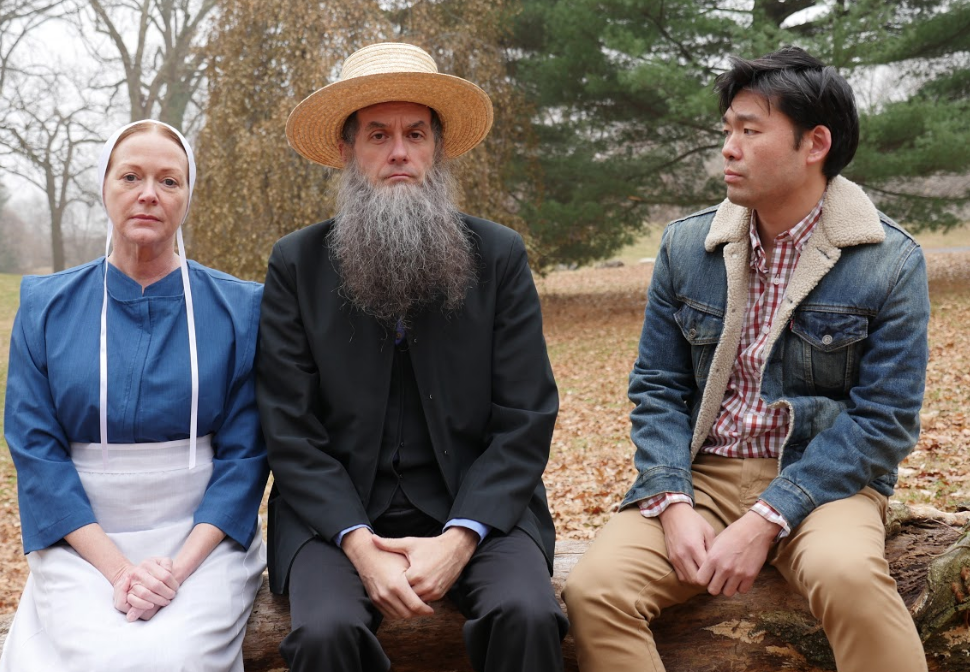
In the world of Chelsea Marcantel’s Everything is Wonderful, nothing really is. Life is hard, and it’s made harder by the people in it. Faith is a gift and an excuse, depending on who you ask. Set in Amish Country, in a community often written off for its otherness or idealized for perhaps the wrong reasons, the play uses the unfamiliar to explore radical forgiveness, a concept that may be just as foreign to most as the Pennsylvania Dutch accent.
The new Everyman Theatre production, up through February 24, is not glitzy or extravagant. Its costumes and sets are well done but simple, as befits its setting, and the light and sound design evokes the softness and stillness of the community at its surface. For most the Everything is Wonderful and the lifestyle it depicts will be wholly unknown, but that works entirely in its favor.
Between the joy of Ruth (Hannah Kelly), the wisdom of Jacob (Bruce Randolph Nelson), the rage of Miriam (Alex Spieth), and the steadfastness of Esther (Deborah Hazlett), I felt torn in two directions, not unlike the the family itself. I couldn’t quite tell you if I wanted to run to the comfort of a church or far from its flawed congregation by the end, but that’s the trouble with faith. It’s supposed to be blind, but it’s hard not to peek and see flaws in it when things go badly. This is a story without a clear moral. Should we forgive and forget? Should we do it always? Never? Sometimes? Everything is Wonderful doesn’t leave you with an answer, but a question, and sometimes that’s more useful.
As for the performance itself, company members Hazlett and Nelson prove again why they are stalwarts of the Baltimore stage. Paired for the eighth time as fictional husband and wife, they inhabit their characters and feel so completely tied to one another. They hold together this family coming apart, if only barely.
The men whose choices necessitate such incredible forgiveness, Tony Nam as the repentant “English” among the Amish, Eric, and Steve Polites as Abram, whose status as the “LeBron James of being Amish” isn’t close to his whole story, conjure some of the most complicated feelings in the play and shine in their moments of vulnerability. Kelly exudes sweetness as Ruth, who makes the best case for faith itself. She is all love and forgiveness and light, even as darkness creeps in around her. Spieth, meanwhile, is probably the most relatable of the bunch. Wronged and angry but unable to fully leave those who wronged her behind, her personal journey feels the most real, making its final destination all the more wrenching.
The play’s format takes a few scenes to get used to, flashing from past to present and sometimes pairing the two together to construct the details we need to move forward, but it fits the narrative so well that the early moments of confusion are worth it. After all, “what’s past is past” never seems to be true. What’s past always creeps its way into the present. It sticks to you and changes you.
As we watch scenes five years apart unfold concurrently, that seems more true than ever. Forgiveness is a choice, but some things—love, loss, hurt—are impossible to forget, whether we want to or not. Days later, I’m still unsure if I could forgive all of the characters in Everything is Wonderful. But I know I won’t forget them for a long while.
